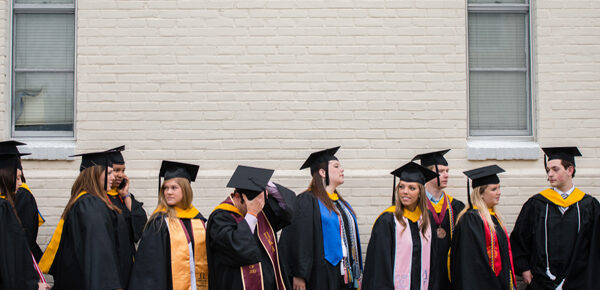Faces of Dreamers: Mariana Sarmiento Hernández, University of Nevada, Las Vegas
This is one in a series of posts on individual Dreamers, undocumented immigrants brought to the United States as young children, many of whom are under threat of deportation following the Trump administration’s decision in September 2017 to rescind the Deferred Action for Childhood Arrivals policy, or DACA.
Mariana Sarmiento Hernández is using her experience as an undocumented student at the University of Nevada, Las Vegas (UNLV) to carve a path for others in a similar situation as the resource coordinator for the Office of Diversity Initiatives.
While earning her undergraduate degree, Sarmiento Hernández worked with advocates, faculty, and staff to persuade UNLV administrators to create the position. Her role is to help students succeed while navigating the challenges of an uncertain immigration status.
“She was part of the impetus to form both a student support network and a faculty task force to provide education, advocacy, and support to those with limited immigration status here,” Chief Diversity Officer Barbee Oakes said.
Sarmiento Hernández uses her robust knowledge of campus resources as well as personal experience to anticipate what support a student might need. She was brought to Nevada when she was one year old and grew up in Las Vegas, eventually qualifying for DACA status when it became available. Her help is much needed on campus, as Nevada has one of the largest populations of undocumented immigrants in the country.
Sarmiento Hernández graduated with a B.A. in sociology in 2017 and is currently pursuing as master’s degree in social work, completing her practicum at the campus’s immigration clinic.
Mayra Salinas-Menjívar, legal services fellow at UNLV’s University Legal Services for Immigrants, said Sarmiento Hernández’s role as resource coordinator is critical to connecting students in need with service and resource providers across campus.
“Our services are not super widely known,” Salinas-Menjívar said. “We need help with outreach and getting information about changes to federal immigration policies out to students, especially nowadays that these changes are happening very quickly.”
Read more about her work here.
If you have any questions or comments about this blog post, please contact us.


